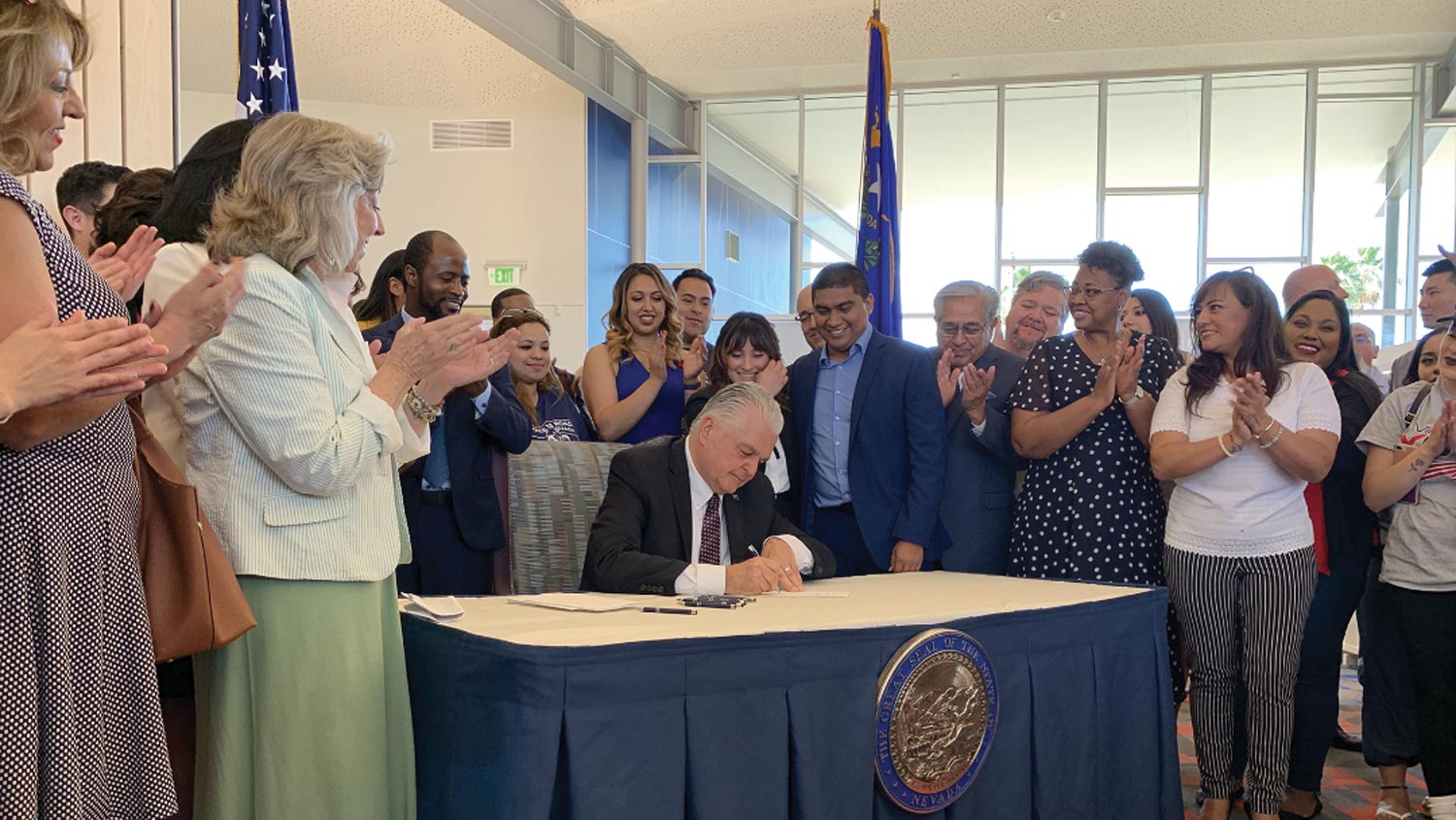
When Charina de Asis arrived from the Philippines to Las Vegas nearly a decade ago, she had questions about how to navigate the workforce and access essential services in her new home.
“When immigrants with a different background and skill set come, they wonder how to translate that to the United States economy,” de Asis told the Asian Journal. “That’s what I feared too — how to bring my professional experiences here.”
The 31-year-old Filipina immigrant recognized her advantage of being proficient in English and a college graduate, as well as having her immediate family as a support system. However, many new immigrants may not have the same resources and there are other factors, such as language barriers and fear of government, that prevent them from seeking help.
Today, de Asis is using her background and passion for public service to guide immigrants when they arrive in the Silver State.
In August, Nevada Governor Steve Sisolak appointed her as the director of the Office for New Americans, which serves as a central place for refugees and immigrants — who make up 20% of the state’s population — to navigate immigration policies, workforce development, starting a business, and other quality of life services.
“Charina has done a terrific job throughout her career helping those in need and advocating for what she believes in,” Sisolak said in a statement. “Our goals are aligned for the Office for New Americans, and I’m confident that in this position she will work to support our newest neighbors, help them navigate through challenging bureaucratic barriers, assist them in building new businesses, and create a welcoming environment in Nevada. I couldn’t think of a better person to help us achieve those goals than Ms. de Asis.”
Originally from Cebu, Philippines, de Asis migrated to Las Vegas in 2011, where her family had settled before her. She had earned bachelor’s and master’s degrees in international relations from Ateneo de Manila University and Tallinn University of Technology in Estonia, respectively.
De Asis briefly lived in Washington, D.C., where she had a fellowship with a member of Congress. But she realized that she wanted more of “tangible results” in her career and moved back to Las Vegas to work with the state government, where she held positions within the Department of Public Safety and the Department of Veteran Services.

In March of this year, she saw a job listing and applied for a senior advisor role in the Office for New Americans, which had been created last fall after Senate Bill 538 was passed in the state legislature and subsequently signed by the governor. Sisolak called for the creation of this office to break down bureaucratic barriers, support immigrant-serving organizations, and let immigrants know they are welcome in Nevada, especially at a time when there is rhetoric that makes them feel otherwise.
“It wasn’t just a professional interest. It was a more personal level for me being an immigrant and using my skills and abilities to help other immigrants,” de Asis said. “I know how hard it is to move and feel your way and be successful in the United States.”
Less than six months into the job, she was promoted by the governor after the former director, Amaka Ozobia, left the role.
“As a director, I can voice out more on what I want this office to be, which is to be that middleman between government and our community-based organizations…[and] work together to help immigrants, whether they’ve been here for 20 years or if they arrived yesterday…I want the office to make it more commonplace that immigrants can thrive in Nevada,” de Asis said.
Though she is the only person in the office, for now, she said she is working on licensing guides for immigrants who come with certain degrees and skills. Often times, the degrees or licenses can’t be converted so they have to shift to another position or settle for lower-wage jobs.
“Sometimes there’s trouble in trying to translate your skill sets here, whether you were a doctor, nurse, engineer or accountant in your home country. The question is, ‘How can we do it here?’” de Asis said. “So we’re working on licensing and pathway guides to help them scale that economic ladder in Nevada. COVID has shone a light that we need them and that there is an immigrant community willing to work but they sometimes don’t know how to get there.”
The office does not take someone’s legal status into consideration and is only in touch with U.S. Citizenship and Immigration Services (USCIS) for updates like rule changes. (Undocumented immigrants comprise about 7% of the state’s population.)
“It’s not about status, it’s about the dignity of a person. People tend to forget that immigrants touch every corner of Nevada — every business and industry,” she added.
With the coronavirus pandemic still upending everyday life for Nevadans, communities of color have been disproportionately affected in terms of infection rates and hospitalization, and economically as major industries had been shut down or limited in operations.
Immigrants make up nearly 40% of workers in the state’s hotel and food services industry, and nearly a third of those in the arts, entertainment, and recreation, according to the American Immigration Council. Nevada posted the highest unemployment rate in the nation in April at 28.2% following the first full month of non-essential business shutdowns.
Given that, among the current priorities for the office is assisting immigrants with the unemployment application and other relief options for those who did not qualify for stimulus checks under the federal government’s CARES Act, de Asis said.
The office, together with other agencies, is also working on in-language and culturally relevant messaging that will inform immigrant communities about the health and safety orders. In April, it released “Stay Home for Nevada” PSA in six languages, including in Tagalog.
The Philippines continues to be the second top country of origin for immigrants, and Filipinos are the largest Asian American and Pacific Islander group in Nevada. De Asis hopes that representation in this office — which is physically located inside the Grant Sawyer State Office Building in Las Vegas — will help immigrants feel comfortable reaching out.
“There’s a myth in the Filipino and AAPI community that we don’t need help or that we’re fine. I want the Filipino community to know, especially in Nevada where we’re such a big part of the population, that they can engage with the office and have a voice because they have someone on their side to fight for issues,” she said.






